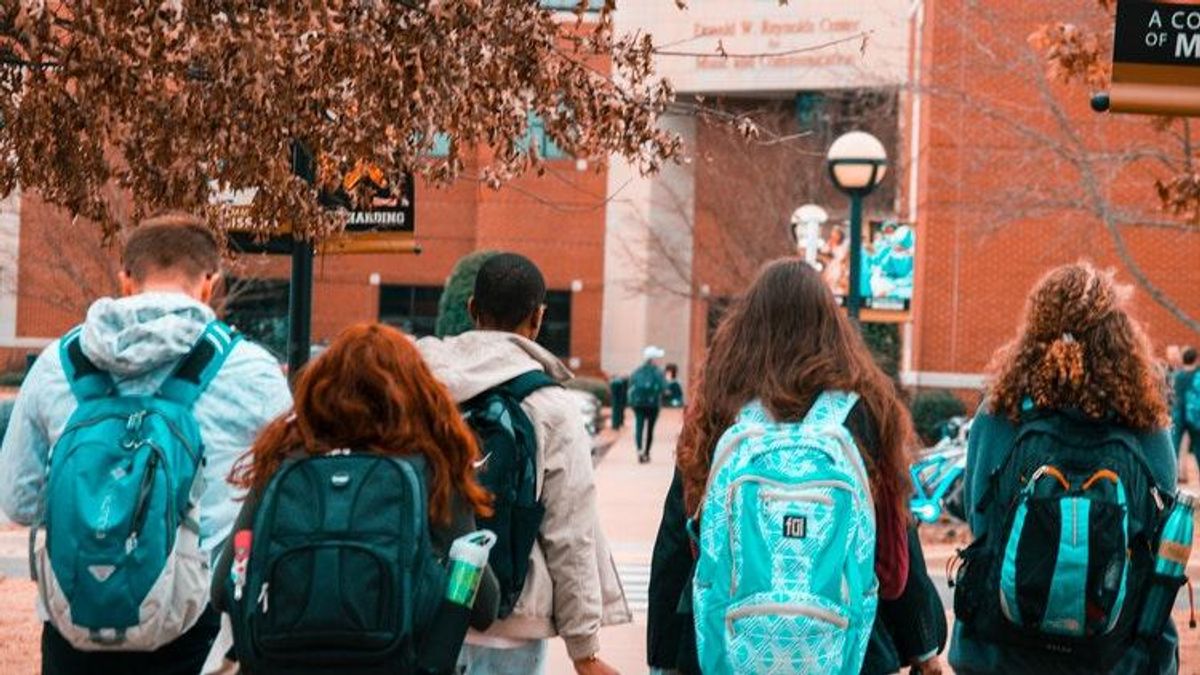Voices
Educators Must Offer Alternatives to the White, Hetero Narrative

Photo by Stanley Morales from Pexels
We need a public school curriculum that reflects all our stories.
August 17 2020 11:36 AM EST
May 31 2023 5:47 PM EST
By continuing to use our site, you agree to our Private Policy and Terms of Use.

We need a public school curriculum that reflects all our stories.
A few years ago, we did a "step in, step out" activity in my New York City classroom. Students would step in if they knew the name of the historical figure given, explain who that person was, then step back out. When the name Matthew Shepard was said, students offered blank stares in response. We went on. Ryan White? Tyler Clementi? Edie Windsor? Nothing. Then, we shifted the approach. James Byrd? Trayvon Martin? Tamir Rice? Michael Brown? Eric Garner? Only two students stepped forward. Then we asked about Katherine Johnson, Mary Jackson, and Dorothy Vaughan. No one moved.
The experience was unsettling. It happened because the way we currently teach history often excludes the narratives of the vast majority of the population - that is, people who are not white, cisgender males - from the curriculum.
Systems that perpetuate inequality are so often left unquestioned. We are, as a result, in danger of having memories lost, moments forgotten, and powerful stories left untold.
It's time for schools everywhere to actively be part of the solution.
Teachers and administrators urgently need to transform curriculum and implement culturally responsive pedagogy across all subjects and grade levels.
We can no longer be complacent and think that it is not our job, or that it is just too uncomfortable to bring complicated, diverse stories into our classroom. In fact, we are failing our students if we do not.
Beverly Daniel Tatum talks about how students need to see themselves in the books they read. It's our job as educators to seek out and share stories in our curriculum that reflect the students and communities we serve.
So how do we make students and faculty aware of history that challenges their own personal narrative?
It starts with quality professional development. At IS289 in New York City, we had our departments discuss this exact question, and we've worked hand-in-hand with our support staff from the Teachers College Reading and Writing Project to magnify the importance of these critical issues on an ongoing basis. For teachers to be successful diversifying their approaches, they need the right support.
Curriculum reviews are also more important than ever. We must pick units with alternate narratives and stories to replace the ones that we have been using for years. Departments do not have to overhaul their entire curriculum top-to-bottom to begin to make change. It can start with one unit and expand from there.
For students, we always ask: How do we become aware of history that challenges our own personal narrative? The fact is those stories and narratives don't have to be sought. They often already exist in my classroom. Educators simply just need to make a safe space for those stories.
And for ourselves, we often ask: How do I encourage students to seek out alternatives to the white heterosexual narrative?
We encourage students to ask themselves "who else?" when they hear a story. When a textbook tells them that Watson and Crick discovered the structure and function of DNA, they must ask "who else?" Rosalind Franklin made critical contributions to this discovery, but her story is less often told. Books and movies about the Apollo 13 mission show white men in the shuttle and control room, but do not show that Katherine Johnson's charts and backup procedures helped bring them safely home.
We must teach students to question commonly held narratives.
And equally important, students and teachers can be allies. For students, we can give them the language and skills they need to advocate for the stories they want to see. We must show our students mentors for activism, from the Stonewall riots, to protests, to the social media campaigns of today.
When we give kids the tools for activism, the social progress they can accomplish knows no bounds.
Our school's Gay Student Alliance (GSA) is now creating a library of books, available to all, that celebrate LGBTQ+ voices. Through well-planned student-led activism, we've brought about change in the school's dress code and in classes that split students along gender lines. Our GSA also invites other students to join the work through lunchtime workshops for students and staff, art in the hallways, and one-on-one conversations.
It's created a better academic environment for all.
Ultimately, allyship is more than putting a "safe space" magnet on your whiteboard. It is encouraging students to consider counter-narratives and bringing the stories of people of color and LGBT+ historical figures into your curriculum.
It shouldn't be a novelty. To engender change, it must be a vital part of the fabric of classroom content. Because now, more than ever, young people need schools and teachers to be bold and do the work to ensure all students are included, challenged and valued in our communities of learning.
Jaclyn Maricle (@jemaricle) teaches Science and Marc Todd (@marctoddnyc) teach teaches Social Studies at IS289 in New York. Both collaborate with teachers around the globe and lead workshops and institutes on culturally relevant pedagogy, immersing kids in nonfiction reading, and teaching students to be critical readers of science and History. Marc is the co-author of Essential Research Skills for Teens and, the forthcoming, The Civically Engaged Classroom: Reading, Writing, and Speaking for Change. Jaclyn is in her second Math for America Master Teacher fellowship and the co-author of a forthcoming book on science literacy. Both have been working with students for six years in the GSA to challenge the heternormative narrative of school and the world around them.